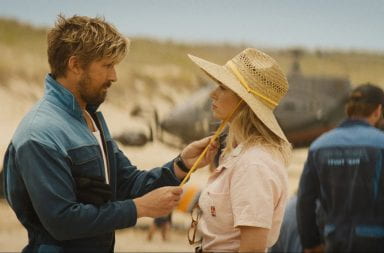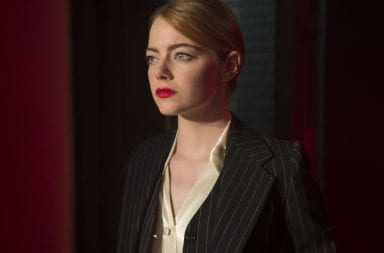Back Tracks is a weekly music column that studies the past, revisiting tunes that may be old but still resonate today.
On the whiteboard in my room, there are scattered, color-coded lists detailing the songs, albums and music videos that have left a lasting mark on my life. It is a list I can look at when I wake up in the morning or before I pass out at night, and be reminded of music that has guided me through many journeys.
Lately, I have been expanding this list, branching out to other pop culture mediums. Films have piqued my interest recently, and with the Oscars having come and gone, and still staying with us due to some unscripted drama, it is an opportune time to discuss music’s importance in cinematography.
On Sunday night the attention did, and then did not, center around the acclaimed musical “La La Land” following a mix-up during the announcement of the Academy Awards’ top prize, giving “Moonlight” an upset and awkward victory.
For the purposes of this column, a musical taking home best film would have lent itself to richer content. However, sometimes music thrives in films when directors revisit old tunes, as this column does, which heighten the mood in a given scene. For that reason, here are two of my favorite films that incorporate classic tunes into memorable cinematography moments.
“Just Dropped In (To See What Condition My Condition Was In)” by Kenny Rogers and the First Edition (1968) in “The Big Lebowski” (1998)
Cult classic “The Big Lebowski” includes my all-time favorite movie scene that incorporates music. If you are not familiar, it is not really a film you can capture with a one- to two-sentence synopsis.
The mission of the main character, “The Dude,” throughout the movie is to unfurl a heist that never should have involved him, putting him in many absurd situations.
There are very few scenes in which The Dude loses his grasp on life and does not seem in control. One of those moments comes just before the movie’s climax when he visits the house of a porn tycoon searching for ransom money. The tycoon spikes The Dude’s signature drink, a White Russian, and the movie’s most psychedelic act ensues.
The drink puts The Dude in a drug-induced trip about being in a bowling movie starring himself. It is nuts, but Kenny Rogers and the First Edition’s take on a song originally written by Mickey Newbury kicks it up a notch.
The song itself describes a psychedelic experience, so when the reversed guitar-riff intro and first gospel-esque “yeahs” hit, the wild film inside a film begins with The Dude dancing his way into a bowling alley. Rogers’ mysterious tone mixed with a background rattle intensifies the confusing nature of The Dude’s state. The scene ends when the glorious “yeahs” circle back one last time and The Dude is rocketed back into a harsh reality.
“Too Hot To Stop” by The Bar-Kays (1976) in “Superbad” (2007)
Through and through, the music in the buddy comedy “Superbad” starring Jonah Hill and Michael Cera, with Christopher Mintz-Plasse playing third wheel, is extremely groovy. For a movie about three nerdy, awkward white kids hoping to score before they leave home for college, the score emulates the cool funky style of the 1970s and ‘80s.
Before you see any of the faces of “Superbad,” the funky bass line and blaring trumpets greet audiences to sounds that make them think they are about to enter the world of the 1972 crime drama “Super Fly” instead. While “Super Fly’s” soundtrack was written and produced by purveyor of soul Curtis Mayfield, “Super Bad” tried to follow suit.
Film composer Lyle Workman worked directly with some past members of one of father of soul James Brown’s bands, The J.B.’s, including Bootsy Collins and Clyde Stubblefield, to formulate the movie’s keen soundtrack. That decision made a great contrast between the smooth funk sounds and the awkwardness of three losers trying to get in with the popular crowd.
However, best musical moment wasn’t with one of those original songs, it was with The Bar-Kays, who kicked things off aided by psychedelic dancing silhouettes of the main characters before you see any real life action. A mesmerizing synth pattern leads into a soulful call of “I’d been having my eyes on you for a while, girl,” leading to an uncomfortable conversation about porn between Hill and Cera.
Hill makes a joke near the end of the scene about the Coen brothers, the minds behind “The Big Lebowski,” not directing the adult films the characters watch after Cera complains about the music production in porn. Hill and Cera are right, though — music makes a big difference in providing movies with added emotion.


